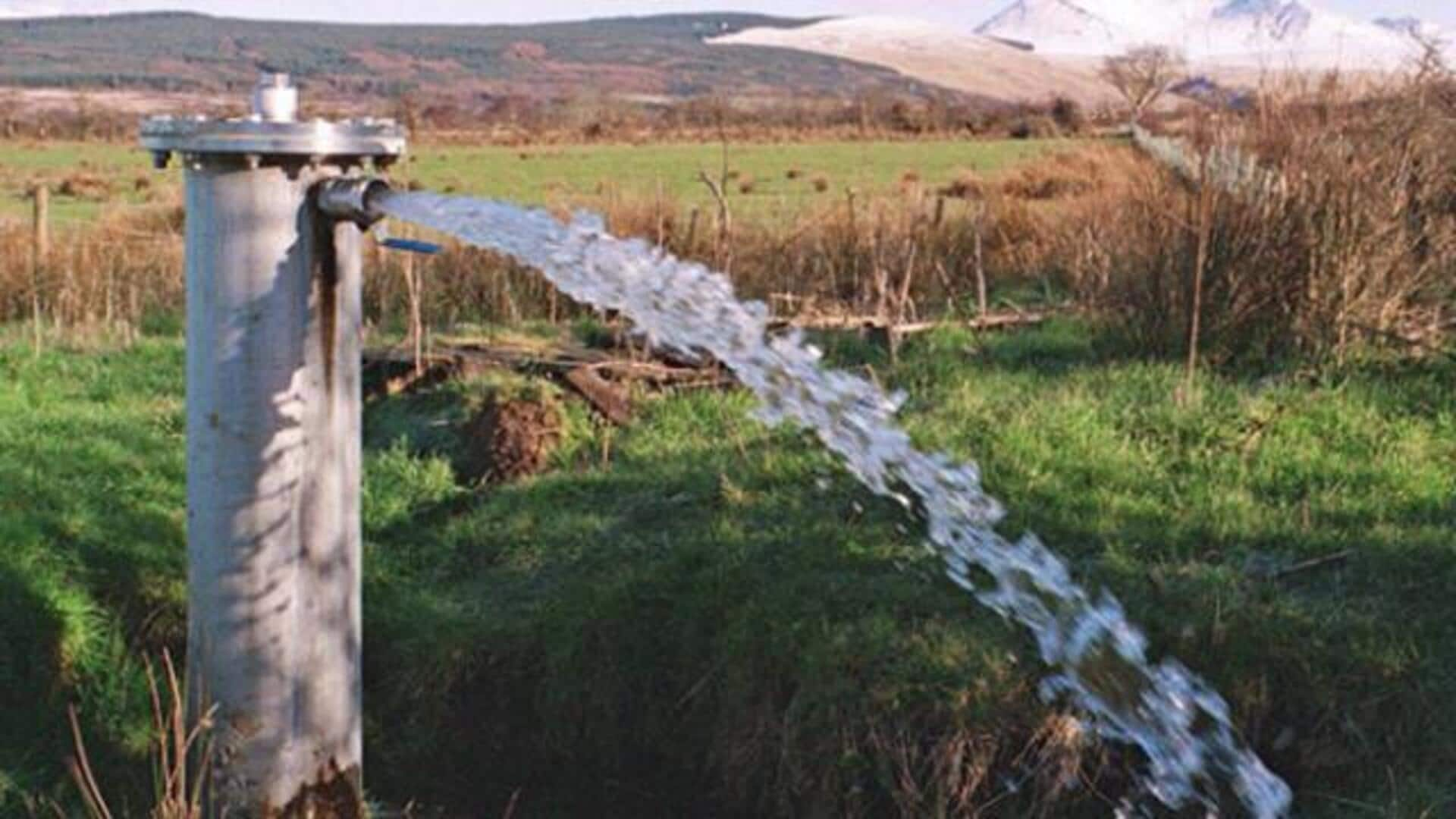
North India's groundwater dropped 450 cubic kilometers over 2 decades
What's the story
North India has experienced a significant loss of 450 cubic kilometers of groundwater from 2002 to 2021, according to a study led by Vimal Mishra, a Professor of Civil Engineering and Earth Sciences at IIT Gandhinagar. This volume is equivalent to about 37 times the capacity of the Indira Sagar dam, India's largest reservoir. The research team used on-site observations, satellite data, and models to establish these details.
Climate effects
Climate change impacts on groundwater recharge and demand
The study, conducted by the National Geophysical Research Institute (NGRI), also suggests that the monsoon rainfall in North India has decreased by 8.5% from 1951 to 2021, while winters have warmed by 0.3 degrees Celsius. Mishra noted that drier monsoons lead to increased reliance on groundwater for crop irrigation during rainfall-deficit periods, while warmer winters result in drier soils requiring more irrigation. He warned that the accelerating trend of depleting groundwater is expected to continue due to climate change.
Future outlook
Future projections of groundwater depletion in North India
The study projects a "substantial decline" of about 6-12% in groundwater recharge. Mishra explained that "for groundwater to get recharged, we need low-intensity rainfall spread over more days." He further stated that changes in groundwater levels are largely dependent on summer monsoon rainfall, and the amount of groundwater pumped out for crop irrigation during their respective growing seasons. The combined effect of increased irrigation demands and reduced groundwater recharge, could put more strain on this already fast-depleting resource.
Climate impact
Detrimental effects of climate change
The research found that a 20% drier monsoon in 2009, followed by an unusually warm winter, had "detrimental" effects on groundwater storage, reducing it by 10%. Soil moisture loss during winters has significantly risen over the past four decades. The researchers project that continued warming, with monsoons becoming 10-15% drier and winters warming by 1-5 degrees Celsius, will increase irrigation water demands by 6-20%. Temperature climb of 1-3 degrees Celsius across North India could also reduce groundwater replenishment by 7-10%.
Policy impact
Policy implications of groundwater depletion
Mishra highlighted the policy implications of these findings, stating that "the water crisis witnessed during this year's heatwave highlights the need for cautious and judicious exploitation of the groundwater." He added that groundwater will become a more crucial resource in a warmer climate, due to rising demands for irrigation and industry. Mishra also emphasized the urgency of addressing this issue stating that "not paying attention to the resource could pose water security challenges in the future."